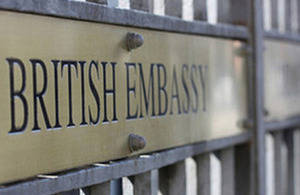Somerset landowner kills fish by tipping chemicals on ground
A retired plant nursery owner has ended up with a bill of more than £27,000 for illegally disposing of waste herbicides and pesticides at a site in Somerset. The chemicals entered a stream and killed more than 270 fish.
In September 2017 the Environment Agency received a report of dead fish in a watercourse known as the London Cross tributary near Combe Florey, Taunton. Investigating officers found dead lamprey, bullhead, brown trout, eels, freshwater shrimps and other aquatic invertebrates that are food for fish. They followed the trail of dead fish and invertebrates upstream to some pipes draining into a ditch.
The next day officers met with the landowner, Michael Cheadle, who showed them an area of gravel near a polytunnel where he said he’d disposed of some old chemicals used at his former nursery business including a fungicide, disinfectant and some fertiliser granules. He said that afterwards he hosed down the area with water. The gravel was only 15 metres from the ditch the officers had seen the previous day.
Cheadle later admitted disposing of a total of 6 chemicals at the site including a fungicide called Amistar that is highly toxic to aquatic life. He told officers he had burnt the empty pesticide containers on a bonfire. Water samples taken from the ditch and stream also contained Lindane, a persistent insecticide that is toxic to humans.
The investigation revealed there was a land drain beneath the gravel where the defendant disposed of the waste pesticides allowing the chemicals direct access to the ditch and nearby stream. A biological survey confirmed the pollution had ‘significantly impacted’ approximately 2 miles of watercourse. Some of the species affected, including eels and lamprey, are endangered.
Matthew Sully of the Environment Agency said:
Pesticides can harm humans, wildlife and the environment if misused or disposed of incorrectly, so it is important farmers and growers behave responsibly.
The defendant had been in the horticultural industry for many years and should have known how to safely dispose of waste pesticides and horticultural chemicals.
Although a negligent act, Mr Cheadle has shown remorse and undertaken all remedial measures asked of him to make sure there were no lasting effects from the chemicals.
The defendant had previously paid more than £25,000 to the Environment Agency to cover its investigation costs. We have powers to re-charge for staff time and any additional resources used during the investigation of pollution incidents.
Appearing before Taunton magistrates, Michael Cheadle, of Oldway, Stogumber was fined £1,130 and ordered to pay £747 costs after pleading guilty to two charges of discharging polluting matter to the stream and the improper disposal of waste pesticide containers. The case was heard on 10 September 2019.
Although domestic pesticides can normally be taken to a local waste recycling centre, commercial and industrial pesticides should be safely disposed of via a licensed hazardous waste collector, details of which can be obtained through yellow pages, internet searches, county waste partnerships or county council websites.

